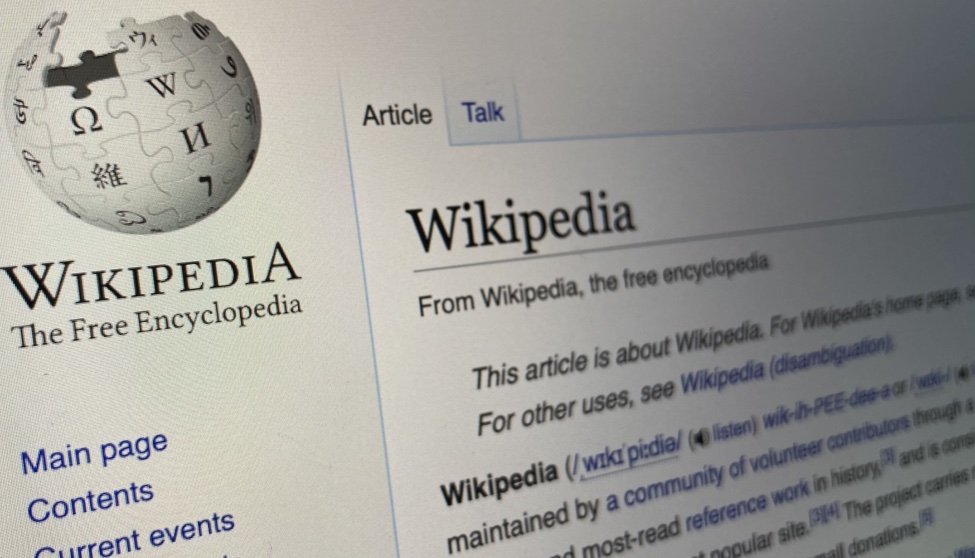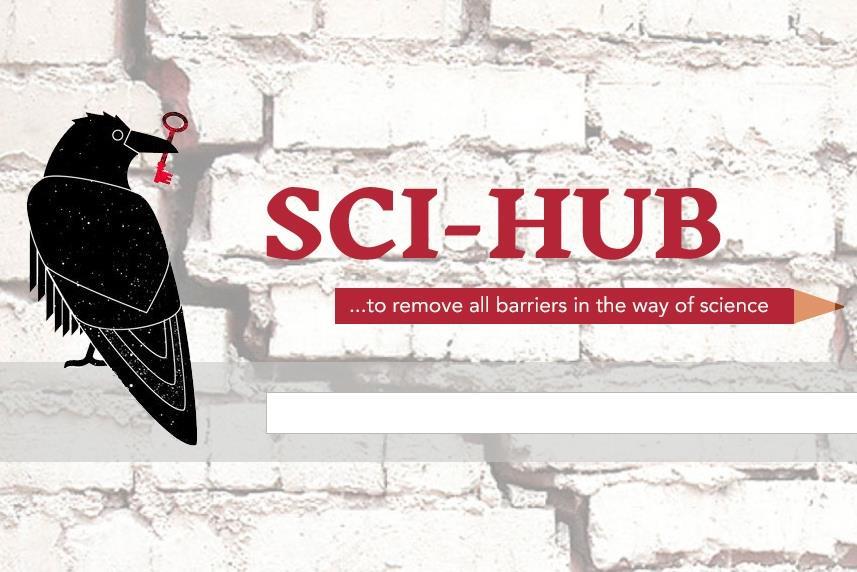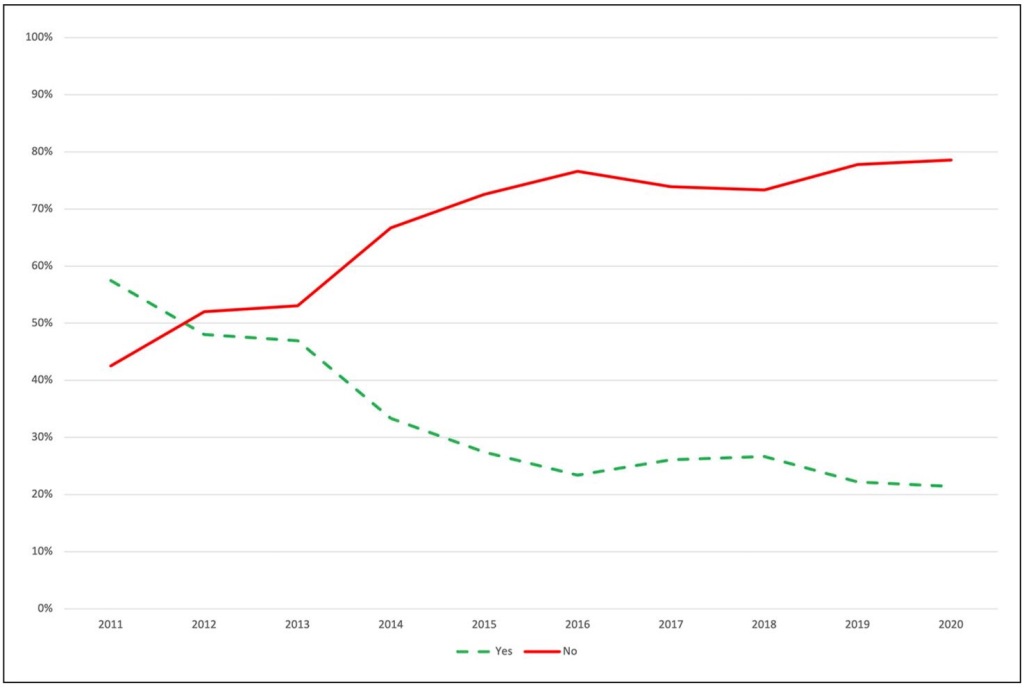You are currently browsing leonidobusch’s articles.
This week, my University of Innsbruck hosted the conference on “Enhancing the voice of science on Wikipedia: How universities can collaborate with the online encyclopedia in science communication”. I had the honor to deliver the opening keynote on “Science (Communication) and Wikipedia: Potentials and Pitfalls”. In this talk, I offer some thoughts on the following questions:
- How ‘scientific’ is Wikipedia?
- How important is science for Wikipedia?
- How important is Wikipedia for science?
- How important is Wikipedia for our common knowledge?
- What are potentials when science communication meets Wikipedia?
- What are the pitfalls?
- Is it worth it?
The slides are available over at Slideshare.

In March 2021, Alek Tarkowski and Paul Keller published an essay on the “Paradox of Open” on the occasion of launching their Brussels-based Think Tank Open Future. While sketching an agenda for their adovacy work, the essay offered a more sober perspective on the promises previously associated with openness:
While Open works as a strategic (and narrative) approach in specific fields of application, it no longer provides a more general vision of a more just and egalitarian digital society.
More recently, open future published a collection of essays responding to this text. I had the honor to also contribute a response essay entitled “How Openness Becomes Exclusionary” on imported, created and path-dependent diversity deficits in online communities that explicitly describe themselves as “open”:
Read the rest of this entry »
I delivered this statement as a panelist at the RIPE@2022 conference “Between the Fourth Estate and the Fifth Power: Conservation and Innovation in Public Service Media Journalism”, September 19, 2022.
Facing competition from large platform giants, from Facebook to TikTok, how should, how could nationally embedded legacy Public Service Media providers ever even hope to compete with those global competitors?
One way to do so would require embracing digital remix culture with its three foundational pillars: copy, transform, combine.
Read the rest of this entry »We, that is Sigrid Quack, Konstantin Hondros, Katharina Zangerle and I, proudly present the article “Between Anxiety and Hope? How Actors Experience Regulatory Uncertainty in Creative Processes in Music and Pharmy”, which has recently been published in “Research in the Sociology of Organizations” (RSO) as part of a volume on “Organizing Creativity in the Innovation Journey”. Check out the abstract below:
Uncertainty about Intellectual Property Regulations (IPR) is prevalent in today’s knowledge-based and creative industries. While prior literature indicates that regulatory uncertainty affects creative processes, studies that systematically analyze the effects of IPR on the experiencing of involved actors in creative processes across fields are rare. We ask how core professional actor groups including creators, legal professionals and managers involved in creative processes experience regulatory uncertainty in the fields of music and pharma. By studying practices of engaging with, circumventing and avoiding regulatory uncertainty about IPR, we show how creative processes in both the music and pharma fields are entrenched with emotional-cognitive experiences such as anxiety, indifference and hope that vary by professional group. Our findings point toward managers and legal professionals observing, exposing and cultivating emotions by ascribing experiences to other actor groups. We conclude that comparing regulation-related emotions of involved actors across fields helps to develop a deeper understanding of the dynamics of creative processes.
In case you or your institution does not have access to RSO please do not hesitate to contact me so I can send you a copy of our article.

Over at Elephant in the Lab, Paul Börsting and Maximilian Heimstädt blogged about “Wikipedia as Science Communication” and provide a neat step-by-step guide for researchers who want to improve their field’s coverage in the world’s most important encyclopedia:
Instagram, TikTok, Clubhouse: Today, researchers who want to share their work with non-academic audiences can choose between a vast array of digital platforms. Some of them vanish as quickly as they appear. Others attract an audience that is looking for something other than scientific content. This blogpost is a plea for researchers to consider one of the most important and yet oftentimes neglected digital platforms when thinking about science communication: Wikipedia. Occupying a stable position among the most accessed websites, it has become the most popular encyclopedia worldwide. However, when considering various alternatives for digital science communication, many scholars think of Wikipedia as just another profile page on the web, complimenting their institutional website. However, they are missing the point. The great but underappreciated advantage of Wikipedia is that it allows researchers to communicate research results and scientific expertise in exactly the place where people look for it: in topical Wikipedia articles. In this way, Wikipedia provides one of the most straightforward and effective means to share knowledge and to leverage research findings towards societal impact. Engaging with the vibrant community of co-editors on Wikipedia is also not a one-way street but in turn can broaden one’s horizon and potentially inspire future research.
Check it out!

Five years have passed since universities, universities of applied sciences and research institutions in Germany initiated terminating their contracts with the world’s largest scientific publisher, Elsevier (see also “‘The Garbage Strike Test’ Put to A Test in Germany: Already One Month Without Elsevier”). There are now almost 200 institutions that no longer have a contract and thus no direct access to Elsevier journals. The reason for this wave of cancellations was a combination of exorbitant price (increases) and the publisher’s refusal to switch to new open access publishing models.
However, it is precisely such new, quasi Germany-wide Open Access agreements that have been signed with the two next largest scientific publishing houses, Wiley (2019) and Springer Nature (2020), as part of „Project DEAL“. These agreements provide for all participating universities and research institutions to be granted access to the publishers‘ journals (archives) and for all articles written by their researchers to be freely and permanently accessible on the Internet worldwide. In turn, Publish & Read fees are charged for each published article. The contracts have been published in full on the web, including conditions (see contract with SpringerNature and contract with Wiley).
Read the rest of this entry »






